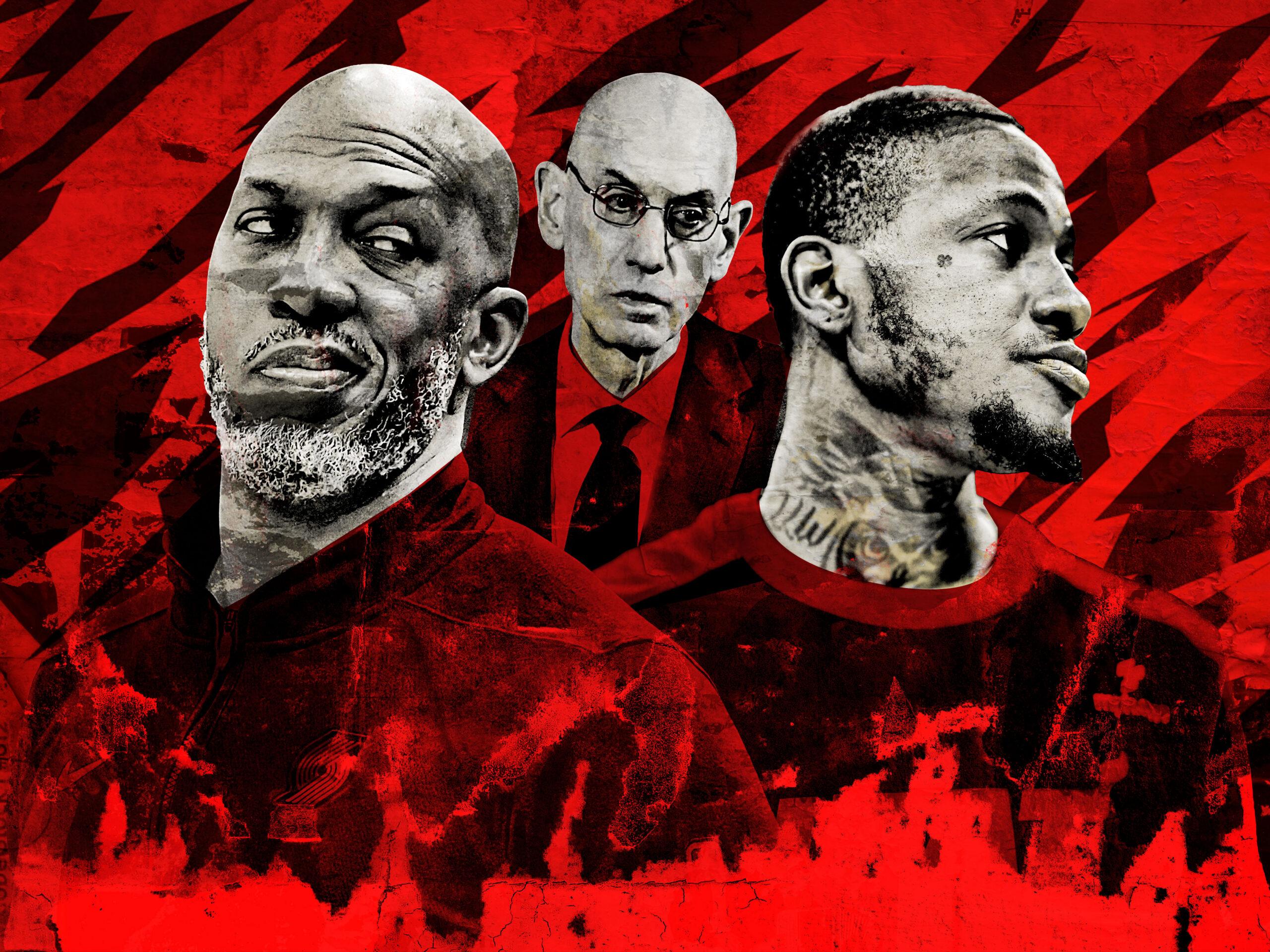Hosts
About the episode
Last week, an FBI investigation into gambling led to the arrest of several prominent basketball stars, raising questions about the state of legalized sports betting, which has enriched professional sports and sports media.
The problems with sports gambling extend far beyond the integrity of the game. A 2024 working paper from economists at UCLA, Harvard, and USC found that states that legalized sports gambling after the 2018 ruling by the U.S. Supreme Court saw “a substantial increase in average bankruptcy rates, debt sent to collections, use of debt consolidation loans, and auto loan delinquencies. We also find that financial institutions respond to the reduced creditworthiness of consumers by restricting access to credit.” A separate analysis found that nearly one in five men aged 18-24 is on the spectrum of having a gambling problem.
There’s no question that sports betting has taken over sports. It’s all over ESPN, all over my favorite sports podcasts. This podcast is a part of The Ringer Podcast Network, which has close relationships with the sports book FanDuel and has several shows devoted to gambling. I listen to them. Quite a lot, actually.
It would be easier for me as the host of this episode if my position on gambling had the clarity of pure outrage. If I thought that gambling was a pure vice, a mere nuisance, and a total drag, I would say: Let’s just be done with it. On the opposite end, if I thought that legalized sports gambling posed no risk to bettors, didn’t threaten the integrity of professional sports, and represented an obvious improvement to the previous regime of black-market betting, I’d say: Ignore these moralizing bozos and place your 15-part parlay.
The trouble is that I don’t have the advantage of clear outrage on this issue. I think that sports gambling is fun. And I think that it threatens the integrity of professional sports. And I think that it ruins some people’s lives.
Today’s guest is Jonathan Cohen, the author of Losing Big: America’s Reckless Bet on Sports Gambling. Like me, Jon is worried about the effect that legal sports gambling is having. Also like me, he sometimes bets on sports. Also like me, he listens to Ringer podcasts.
If you have questions, observations, or ideas for future episodes, email us at PlainEnglish@Spotify.com.
In the following excerpt, Derek talks to Jonathan Cohen about the state of sports gambling in the U.S.
Derek Thompson: You and I have been emailing for a while about doing an episode on sports betting, which the FBI announcement provided an obvious news peg for. And when I asked you what your take on the NBA scandal was, you wrote this: “The big argument this week is whether the rise of legal sports betting as a mainstream consumer good played any part in the scandal. Technically, it didn’t, but also it obviously did.” What did you mean by that?
Jonathan Cohen: So, a couple things. And first is that we’ve had sports betting scandals like this. The Black Sox Scandal of 1919 is the first one that comes to mind. A lot of armchair historians this week who have a lot to say about the Black Sox. And the case against the two of the coaches and former players who were arrested earlier this week is built on sort of a traditional sort of game-rigging insider information scandal that might have been familiar to Shoeless Joe Jackson in 1919, right? Using, leveraging insider information about how a team would play or what players would play or how they would perform to the benefit of gamblers, to tip off gamblers in advance. OK, fine. So that’s where you’d say this has nothing to do with legalized gambling because we’ve had this long before we had legalized gambling. We’ve had these exact kinds of scandals.
But then two other ways where it sort of obviously is connected. The first is the Terry Rozier case, which is similar to the Jontay Porter case from last year that folks may be familiar with. Terry Rozier is alleged to have rigged his own performance and tipped off bettors that he was going to check out of a game early. So they bet lots of money on whether he would exceed a certain number of points or exceeded a certain number of rebounds. And then, lo and behold, nine minutes after checking into the game, he checks out because he claims his foot is hurt, so he does not exceed those numbers of points or rebounds. But there’s a suspicious amount bet on Terry Rozier to exceed those numbers. And that is uniquely modern because those types of bets on whether a relatively obscure player, like Jontay Porter especially, or Terry Rozier, whether they’re going to hit a certain benchmark, that’s uniquely modern. That’s only new. That’s only thanks to this sort of technologically supercharged version of sports betting that we have now that someone can gamble on something like that—not to mention gamble basically as much money as they want on it, in some instances. Not to mention gamble as much money as they want on it from their phone, from their couch. So that’s where this version sort of made that easy and made it different from 1919.
And then, also, I mean, just open your eyes and look at every DraftKings ad and every—well, sorry, this is The Ringer, so every FanDuel ad on every commercial during its break during a sports game—and it’s clear that the culture of sports has just changed to being about gambling in many ways. I see sort of an inevitable consequence of the rising culture of sports gambling and the number of people involved in sports gambling as more people trying to rig games or more people trying to call up their buddy who’s an athlete and try to get them on the take. And lo and behold, you get scandals like the one we had last week.
Thompson: I really want to understand a history of how we got to here. But before we do that, I think it’s really important to be clear about what is the problem we’re trying to solve here. What’s the problem with sports betting—normalized and popularized sports betting—in your mind? Is it the threat to young people? Is it the threat to young men? Is it the threat to people who are predisposed to gambling addictions? Is it the integrity of the game, which is something that NBA commissioner Adam Silver was just speaking to? I mean, take your time with this answer, because I think it’s really important to be clear about the problem we’re trying to solve before we get into the history and the analysis of exactly what’s happened to these leagues.
Cohen: Yeah. I think the scandal of the day this week was the integrity of the game question. But to me, the scandal when it comes to sports betting is what’s happening to young people, more particularly to young men, and the way that they are losing time, money, mental health, in some cases their own lives, because of how much they are gambling. In some cases, they are developing addictions. But in many cases, even people who are suffering negative consequences, it’s not an addiction per se. It’s just a bad experience, like a bad night or a bad week or a few weeks, that leads them to lose a lot more money than they intend, a lot more money than they can afford, and run into trouble that way.
Thompson: I want you to make the case in the strongest possible terms that these harms have reached the level that we should care about as a national policy. So here’s some statistics that I learned from your book and your reporting. Half of men between the ages of 18 and 49 have a sports-betting account. Now, pause. There’s nothing particularly alarming about that. I mean, half of men can have accounts on any kinds of websites. It doesn’t mean there’s any particular harm that has met them. Now we move on. In New Jersey, nearly one in five men aged 18 to 24 is on the spectrum of having a gambling problem. That’s a little bit more concerning. Another statistic: 82 percent of revenue from bets on the NFL comes from just 3 percent of bettors, which suggests that maybe there are a lot of people who cannot afford the level at which they’re betting that are going back and chasing lost bets and getting deeper into debt. There’s also been research suggesting that, and correct me if I’m wrong here, we see meaningful increases in personal bankruptcies as states begin to legalize gambling.
Going into the stats here, I don’t want to lard people up with statistics, but again, it’s important to be specific. What are you most concerned about? What is the money stat that should really make us open our eyes to say, “This has reached the level of something we can begin to think of as a public health crisis”?
Cohen: Right. So you alluded to these two papers, these two landmark papers, I think, working papers, that show that the financial effect of the legalization of online sports gambling is so acute that it sort of shows up in state-level aggregate statistics, where, within a few years of a state legalizing online sports gambling, we see personal bankruptcies go up, we see auto loan delinquencies go up, and we see savings and investment in low-income households go down. So these are, of course, correlational, not causal. So folks can sort of pick their nits with those studies if they want to. But to me, it is evidence. It is quantitative evidence for the qualitative conversations I’ve had with many of these bettors and with people who work with bettors and addiction treatment providers, for example, who see this happening, who see a demographic change in the people who are coming to them for gambling addiction treatment, which is trending a lot younger than it used to be. And it is, again, so pervasive that it is showing up at this sort of aggregate level beyond what we would have maybe expected of, we look at Derek here and Jon there and so on.
This excerpt has been edited and condensed.
Host: Derek Thompson
Guest: Jonathan Cohen
Producers: Devon Baroldi


